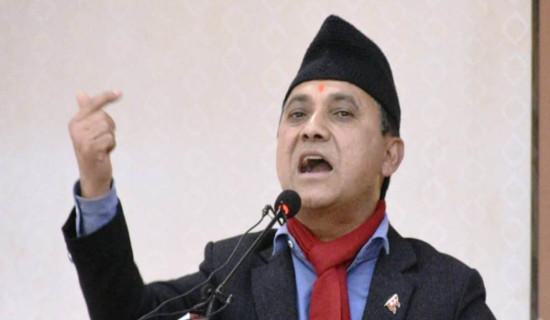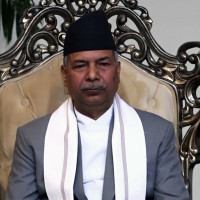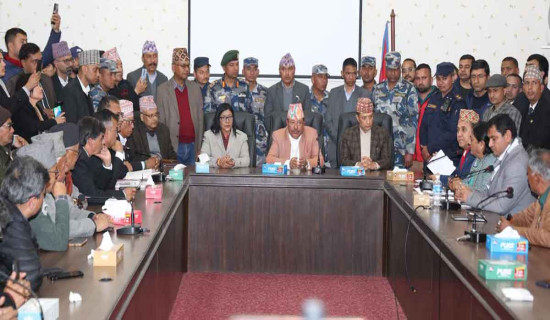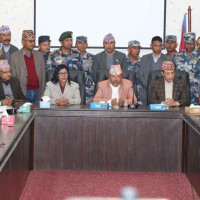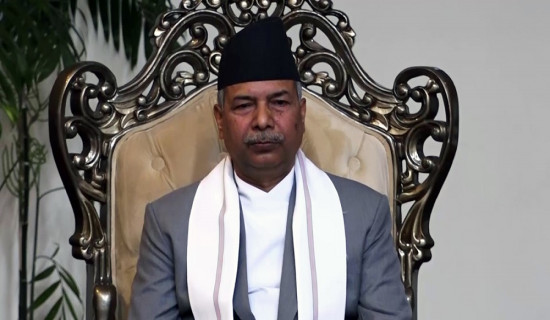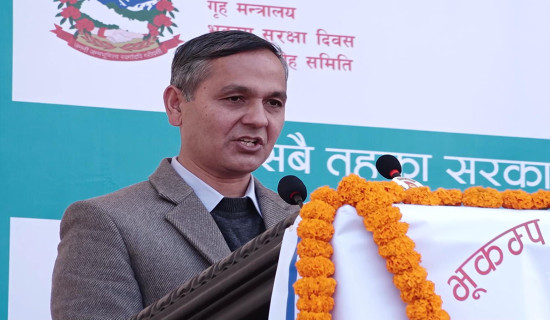- Saturday, 17 January 2026
Paralysis medicines to be availed free in Nepal
By A Staff Reporter
Kathmandu, Jan. 17: Minister for Health and Population Pradip Paudel has announced that highly expensive medicines used to treat a rare form of paralysis will now be provided for free in Nepal.
Speaking at a programme on Thursday, Minister Paudel said that the medicines used in treating a form of paralysis would be distributed free of cost through federal and provincial hospitals. The disease claims around 800 lives annually. The drug is being obtained with the help of US assistance to ensure that it is available to those who need it most.
"Although this condition is treatable, many people have been dying simply because the necessary medication is rare and costly. To address this issue, the government has decided to acquire and distribute these drugs for free," said Minister Paudel.
According to the Ministry of Health and Population, the increase in fatalities of individuals linked with high blood pressure and heart problems was caused due to the lack of these life-saving medicines.
Medical professionals have informed that if a single dose of thrombolytic drugs is administered promptly, paralysis can be successfully treated. However, the medicine costs around Rs. 138,000 per dose, which is very expensive and has kept many patients from receiving the medication. In response, the Ministry has stepped in to ensure that the drug becomes more accessible, as announced by Minister Paudel’s secretariat.
A cooperation agreement has been signed between the Ministry of Health and the American Charity Direct Relief, which has committed to supplying the drug for the next five years based on the government's demand. "This partnership will ensure the continued availability of the drug in Nepal," said Prakash Budhathoki, spokesperson for the Ministry.
According to Budhathoki, guidelines for the distribution and administration of the drugs are in development by the Ministry and will be implemented in both federal and provincial hospitals.
Additionally, neurologist Dr Raju Paudel has praised the initiative calling it a significant advancement in Nepal's healthcare system.
The availability of this critical drug is expected to reduce paralysis-related deaths and improve the overall healthcare infrastructure in Nepal.



